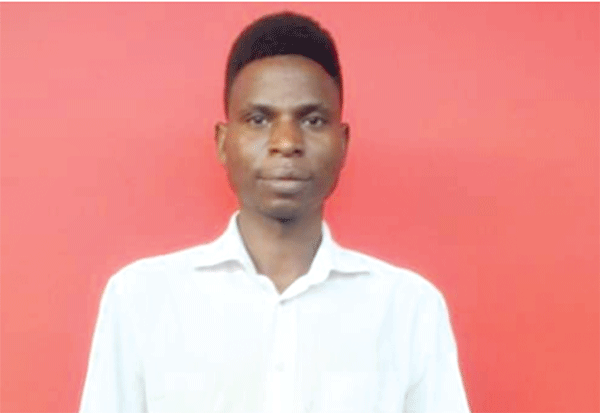
BY Cliff Chiduku HWANGE has the largest coal deposits in Zimbabwe. However, the bounty natural resource has brought riches to mining investors, but a curse to the community in the form of health hazards and environmental degradation.
The area now has most of its rivers polluted and experiences natural fires just below the surface, that are burning both humans and livestock.
The area is slowly turning into an arid desert, neither suitable for human nor wildlife habitation.
There are large plumes of smoke that come out of the furnaces each day, making a low hanging fog of toxic smoke that causes lung infections and other breathing complications to the surrounding communities.
It is in the backdrop of such environmental and human disasters that environmentalists and governments across world have come up with the concept of Extended Producer Responsibility (EPR), a policy that ensures miners mine responsibly without causing environmental degradation and also helping the communities that live within the mining areas.
EPR is meant to help organisations demonstrate their commitment to reducing the environmental impact of their activities.
The concept further touches on manufacturers and importers of products, who should bear significant responsibility for the environmental impact of their products throughout the product life cycle, including upstream impact inherent in the selection of materials for the products and downstream impact from the use and disposal of the same products.
It is also a critical policy tool with a track record in holding companies, especially miners, accountable for the end of life impact of their plastic products and packaging, and encouraging holistic eco-friendly production by the business sector. EPR has its roots in the environmental social governance (ESG).
- Chamisa under fire over US$120K donation
- Mavhunga puts DeMbare into Chibuku quarterfinals
- Pension funds bet on Cabora Bassa oilfields
- Councils defy govt fire tender directive
Keep Reading
ESG is a set of standards that govern how companies ensure that they are responsible in the ways they make profit.
It is linked to the stakeholder model, which argues that companies should create value for stakeholders, not just shareholders.
This governance approach speaks to sustainable development. The push for sustainability should be visible across all sectors.
Sustainable mining places emphasis on the future effects of mining operations.
Learning from the Brundtland Report (1987) by the World Commission on Environment and Development, sustainable mining are activities that meet the needs of the present generation without compromising future generations to meet their own needs.
A recent report by the Centre for Natural Resources Governance (CNRG) warned that swathes of coalfields exploited by Chinese firm, Beifa Investments in Hwange’s Dinde area could have significant negative implications on the community.
“CNRG call for the government to cancel the Dinde coal project and invest in sustainable eco-friendly projects that can uplift the community out of poverty without affecting their health and eco-systems,” the report read in part.
Villagers fear that the project will damage the pristine environment, as well as pollute their water and air, among other violations of local communities’ rights.
Cases where mining companies are accused of violating environmental laws and perpetrating human rights abuses across the country are rife.
Given these circumstances, the need for sustainable mining cannot be over-emphasised.
While addressing a mining conference in Victoria Falls early this month, President Emmerson Mnangagwa urged miners to strive to build sustainable mining operations.
This follows an outcry in Zimbabwe that some mining companies were carrying out their operations without caring for the environment.
“The importance of sustainable extraction of minerals in a manner that does not negatively impact on communities and ecosystems cannot be over emphasised. It is my expectation that mining houses now begin to green their operations through sustainable mining sector. Sometimes, when I fly around, I see many places where you have dug up holes, and you are gone, so please don’t invite me to introduce draconian legislation,” Mnangagwa said while officially opening the conference.
Since its adoption, the “Zimbabwe is open for business” mantra has placed the country “under siege” from local and foreign miners who appear to be in a rush to grab as much as they can.
It was clear from the onset that Zimbabwe’s vast mineral resources would be a magnet to investors, both well-meaning and unscrupulous.
Investors came in their hordes, far and wide from Russia, China, the United Arab Emirates, South Africa and the United Kingdom.
Since the country is striving to achieve a US$12 billion mining economy by next year, the temptation is to “exploit” mineral resources with impunity is expected.
The Environmental Management Authority should be capacitated to enforce the EPR.
This policy should be the driving force behind miners adopting activities that reduce negative environmental impact, as well as making it easier to reuse or recycle their waste and products.
Zimbabwe is still struggling to put environmental laws and regulations in place to control environmental degradation.
Where the laws are in place, implementation of regulations is weak and the fines are too small to deter mining companies from breaching the law.
As long as Zimbabwe does not force mining companies to comply with local laws, the country will not realise its full potential.
Future generations will also have nothing to show for the country’s endowment other than gullies.
Sustainability is key.
- Cliff Chiduku is a journalist based in Harare. He can be contacted on +263775716517, Email: [email protected] or on Twitter @ChifChiduku.











